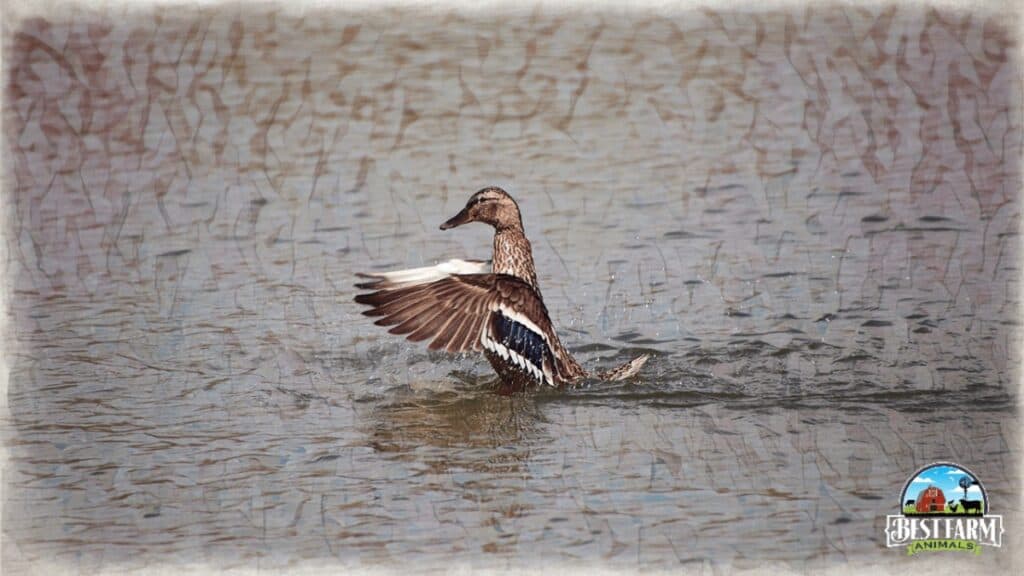I’ve had ducks for years and I usually don’t have to worry about ducks. However, recently while visiting one of my friends in the Southern USA, she asked me why her ducks were sick. I quickly realized that her ducks were suffering from a parasite overload. (Parasites have some of the same symptoms as a vitamin deficiency, so watch for unique symptoms.)
Do Ducks Need To Be Dewormed? Ducks don’t generally need to be dewormed. In rare situations, a duck can get infested with worms. There are five types of worms that ducks can get infected with and most of these worms use earthworms as a carrier. Since ducks eat earthworms, it is possible for them to be infected. Another common cause is exposure to wild ducks and feces of wild ducks.
Ducks that have access to swimming water are much less likely to have worm issues. It’s also vital that your ducks have access to clean water that is changed daily. The water will be muddy and dirty within minutes, but as long as it’s changed daily, your ducks won’t get ill from dirty water.
Another common cause of worms in ducks is when a lot of birds have been kept in the same area for many years.
7 Signs That Your Ducks Have Worms
If your ducks have worms, the most likely symptom you’ll notice is a drop in you duck’s health. They may lose weight and look sick. Ducks with worms often exhibit pale wattles, may cough, loose weight, or show blood around the vent. You might see your ducks with diarrhea or notice worms in it’s poop.
- Being Underweight: Ducks with worm infections might lose weight.
- Coughing and Shaking:The coughing and shaking that ducks with worm infestations may display may be brought on by gapeworms.
- Diarrhea: Ducks that have intestinal worm infections may experience diarrhea.
- Anemia: Anemia, which can show up as lethargy, weakness, and pale comb and wattles in ducks, can be brought on by worms.
- Drop in Egg Production: Egg production may decline in ducks with worm infestations.
- Worms in Feces: Ducks that have worm infestations may have roundworms visible in their excrement.
- Blood around vent area: In extreme cases, ducks with worm infestations may have blood in their feces or near the vent.
Most of the time, it’s fairly easy to keep your ducks worm-free. However, if your ducks are living in crowded conditions or in some areas with higher worm loads- you flock may become overwhelmed.
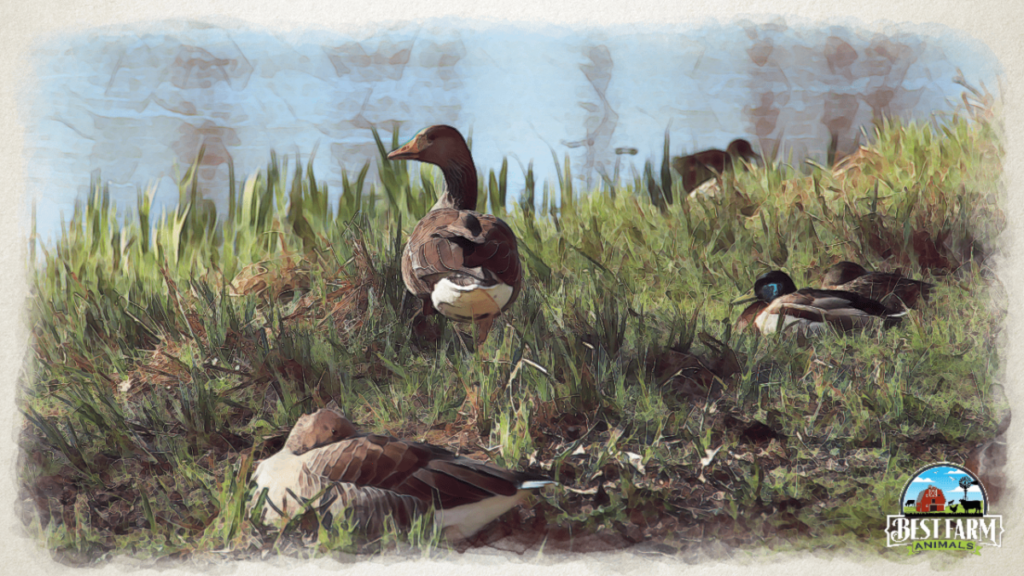
Prevent Worms in Ducks With Good BioSecurity
Even if you raise ducks and keep a lot of ducks, it’s important to rotate them on the land you use. This allows the land to recover and helps to prevent worm issues in ducks.
How Do You Prevent Worms in Ducks? Prevent worms in ducks by cleaning their coops regularly. Avoid feeding them on the ground, make sure new ducks do not have worms, and keep your ducks away from wild ducks. If you have a duck with worms, isolate and treat it before returning it to the flock. Additionally, you can help reduce worms in your ducks by adding Apple Cider Vinegar to their water.
- Provide fresh drinking water daily to your ducks
- Swimming water helps to prevent parasites and worms in ducks
- Give ducks plenty of land to use and avoid overcrowding
- Rotate ducks on land after several years of use to allow the land to revive and avoid over-contamination of worms and other parasites
- Keep ducks isolated from wild ducks
- Isolate new ducks for 4-6 weeks before integrating them into your flock so you can make sure they are disease and illness free
Maintaining good biosecurity is important because it’s not really possible to vaccinate ducks against worms.
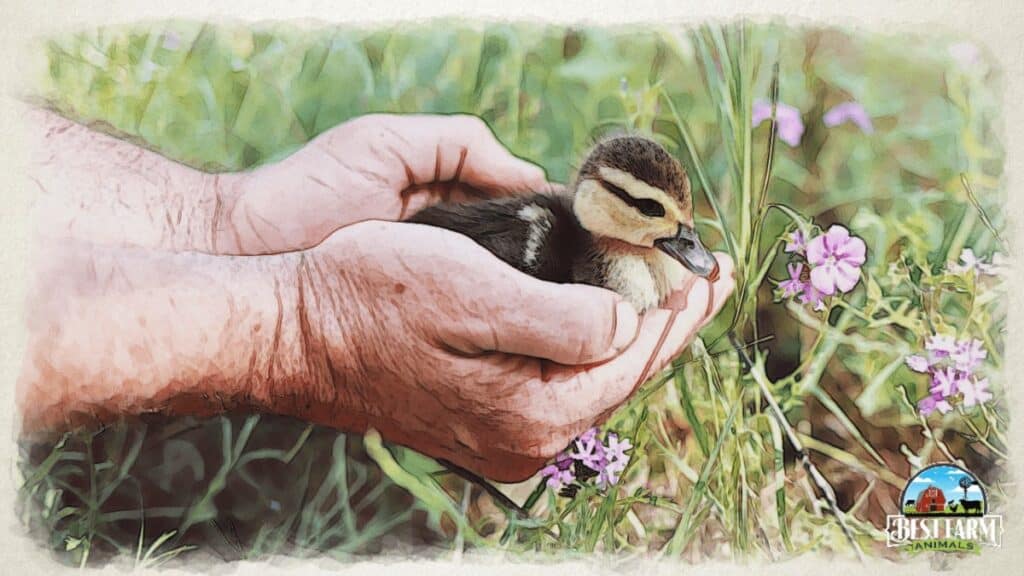
Worms that Can Infect Ducks
Although ducks rarely get worms, there are several species of worms that can infect ducks and make them sick, especially if any of the risk factors, such as overcrowding, are present. The five types of worms that can (but rarely) affect ducks are:
- Tapeworm and fluke worm
- Gapeworm (syngamus) makes ducks wheeze. This worm resides in the windpipe. In extreme cases, it can cause death through asphyxiation.
- Roundworm (Ascaridea) lives in the gut of the duck. It comes out in droppings and will usually spread from wild bird droppings.
- Gizzard worm (Amidostomum) is more common in geese but can be found occasionally in ducks.
- Caecal worm (Heterakis) infects the caeca. The caecum is a pouch found in ducks in the junction of the gut.
For most backyard duck owners, their pet ducks are not at risk of worms. However, parasites can usually be found in some quantity almost anywhere. As a result, it is possible for pet ducks to get worms.
There are several things that usually indicate worms in ducks. An underweight duck can indicate worms residing in the gut and stomach. Coughing or wheezing in ducks are also an indicator of worms in the windpipe or throat.
Treatements for Deworming Ducks
Unfortunately, once they catch worms, it will be harder for your ducks to get rid of them naturally. Once they have worms, it’s important to treat the worms to avoid the spread of worms to other ducks and to limit the health effects of the worms on your ducks
5 Natural Ways to Deworm Ducks
As worms can result in a number of health problems and reduce their overall productivity, deworming ducks is crucial to preserving their health and well-being. Although fenbendazole and ivermectin are common deworming drugs, some duck keepers may prefer natural deworming techniques. Here are a few secure and efficient natural methods for deworming ducks:
Pumpkin Seeds:
Due to the presence of cucurbitin, an amino acid that can paralyze and remove worms from the digestive tract, pumpkin seeds are thought to be effective in deworming ducks. Grind or crush the pumpkin seeds and add them to the ducks’ food. For each 10 pounds of duck feed, 1 teaspoon of crushed pumpkin seeds should be consumed over a number of days.
Garlic:
Garlic is thought to aid in eliminating intestinal parasites because of its potent antibacterial properties. You can use garlic powder or crush fresh garlic cloves and add them to the ducks’ food or water. For several days in a row, it is advised to administer 1 crushed garlic clove per 10 pounds of duck feed.
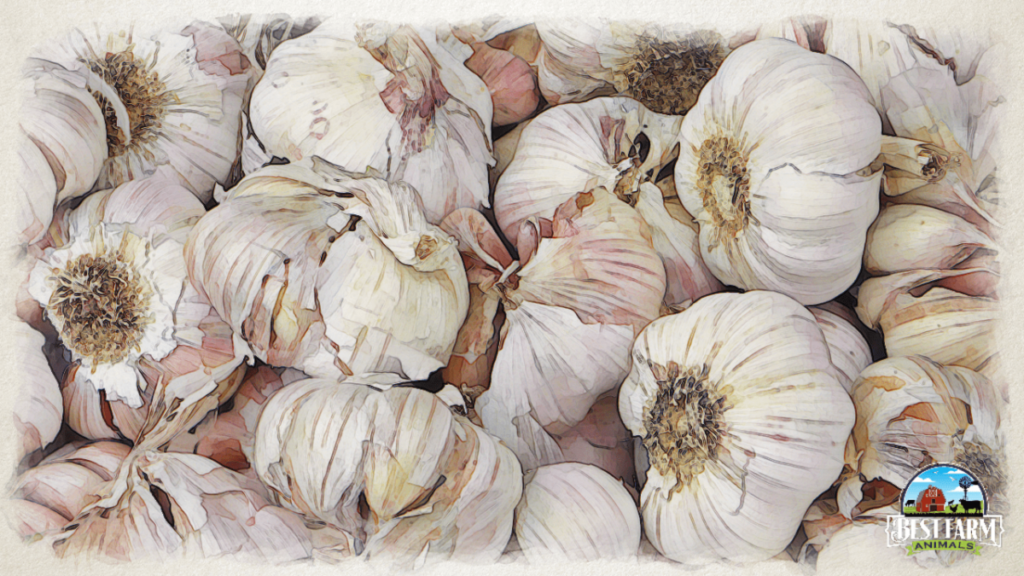
Diatomaceous Earth:
A natural product known as food-grade diatomaceous earth is thought to be effective in deworming animals, including ducks. Diatomaceous earth, made from fossilized diatoms, kills parasites by mechanically harming their outer shells, resulting in dehydration. You can add a little diatomaceous earth to the ducks’ food or use it to dust their home. Use only food-grade diatomaceous earth, and take the dosage recommendations seriously.
Herbal Infusions:
Wormwood, thyme, and sage are a few herbs that are thought to have natural deworming properties. Herbal infusions can be created by steeping certain herbs in water, which can then be added to the ducks’ drinking water or combined with their food.
Before using herbal infusions for deworming, conducting careful research and speaking with a veterinarian or a duck health expert is vital. Some herbs can be toxic to ducks or potentially interact with other medications.
It’s important to remember that natural deworming methods might not be as effective or quick-acting as conventional deworming medications. Their effectiveness will vary depending on various factors. The type of parasites, the severity of the infestation, and environmental circumstances will impact effectiveness. Additionally, it’s critical to watch for any adverse reactions or changes in ducks.
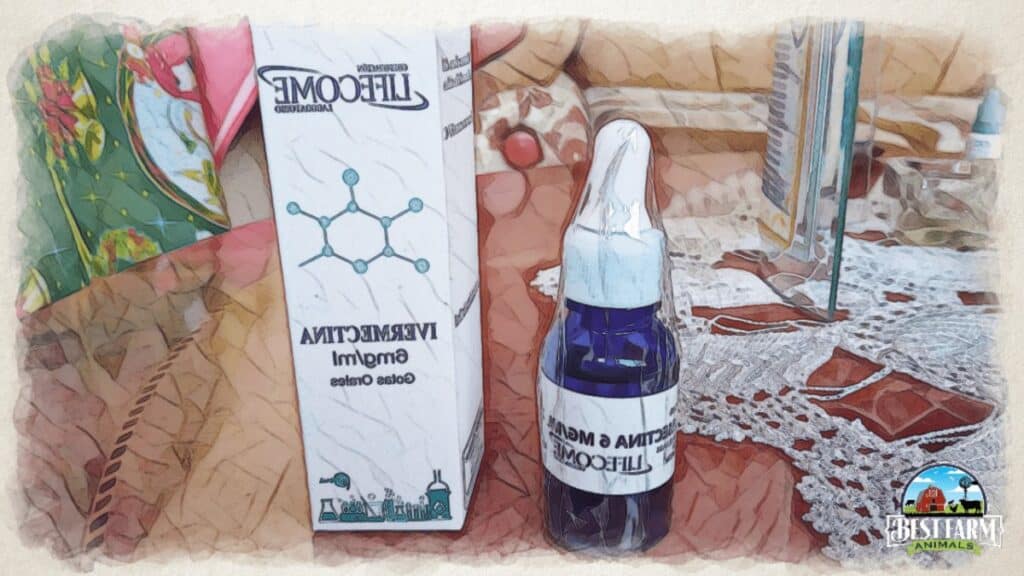
Commercial Dewormers
Fenbendazole: A popular deworming drug for poultry, including ducks, is fenbendazole (also known as Flubevet). It comes in water-soluble formulations that can be added to drinking water or in the medicated feed labeled for turkeys. Fenbendazole is frequently used to treat worm infestations in ducks because it is effective against a variety of internal parasites.
In the USA, you have to get a prescription for Flubevet through a vet.
Ivermectin: Veterinarians occasionally recommend ivermectin for use in ducks as an additional deworming option. It can be applied externally as a spot-on product and effectively against external parasites like lice. Ivermectin is not licensed for use in ducks, so there is no recommended dosage and it should only be applied with a veterinarian’s supervision. Durvet Strike III Poultry Dewormer is sometimes available on Amazon and is an Ivermectin product.
Can Humans Get Worms From Ducks?
It is possible for humans to contract worms from ducks. Roundworms, tapeworms, and cecal worms, which can be transmitted to humans through contact with infested duck feces or through eating undercooked duck meat. These worms can cause a variety of symptoms in people, including coma, seizures, headaches, and fever.
To stop the spread of worms, take care when you handle your ducks. Maintaining good hygiene can decrease the risk of contracting worms from ducks. Washing hands thoroughly after handling ducks or duck feces and making sure that duck meat is cooked to a safe temperature are important steps.
The best course of action is to seek medical advice from a qualified professional for an accurate diagnosis and course of treatment if you believe you may have been exposed to ducks with worms or are exhibiting symptoms that point to worm infection.
My Preferred Duck Supplies and Equipment
This list contains affiliate products. Affiliate products do not cost more but helps to support BestFarmAnimals and our goal to provide farm animal owners with accurate and helpful information.
Ducks can eat non-medicated chicken food or a specially formulated feed for ducks like this duck starter feed.
Mealworms as a protein treat, are easy to keep on hand. I try always to have some available.
An automatic feeder and waterer keep the mess down. I like this one because ducks can submerge their beaks, which is necessary for healthy eating.
DE or Diatomaceous Earth helps to keep bugs and pests down. I prefer food grade so it doesn’t hurt my ducks.
Niacin Tablets and Brewers Yeast are both very helpful in keeping ducks healthy.

